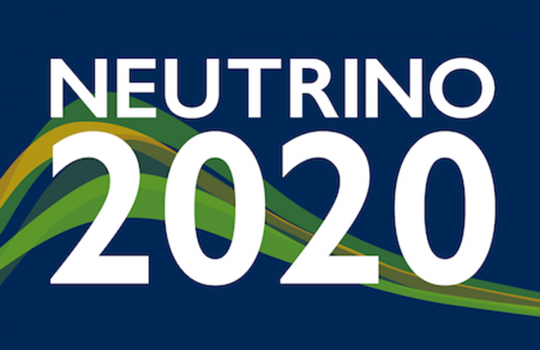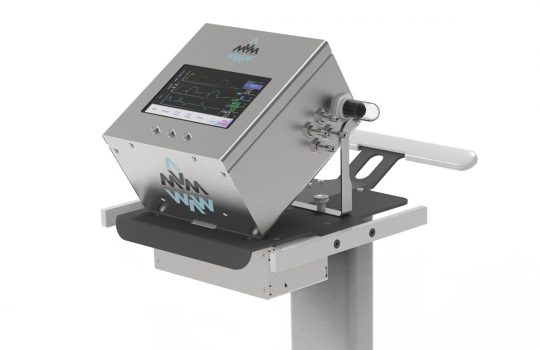White House Office of Technology Policy, National Science Foundation and Department of Energy announce over $1 billion in awards for artificial intelligence and quantum information science research institutes
- artificial intelligence
- Department of Energy
- DOE
- National Science Foundation
- NSF
- Office of Science and Technology Policy
- quantum computing
- quantum information science
- quantum science
- quantum sensor
- SQMS Center
- Superconducting Quantum Materials and Systems Center
Funding will go towards NSF-led AI Research Institutes and DOE QIS Research Centers over five years, establishing 12 multidisciplinary and multi-institutional national hubs for research and workforce development in these critical emerging technologies. Together, the institutes will spur cutting-edge innovation, support regional economic growth and advance American leadership in these critical industries of the future.
CERN experiments announce first indications of a rare Higgs boson process
The ATLAS and CMS experiments at CERN have announced new results that show that the Higgs boson decays into two muons. US CMS — the United States contingent of the global CMS collaboration — played a crucial role in this result, contributing to the excellent performance of CMS detector.
U.S. Department of Energy unveils blueprint for the quantum internet at ‘Launch to the Future: Quantum Internet’ event
- Argonne
- Argonne National Laboratory
- Department of Energy
- DOE
- Illinois
- quantum communication
- quantum information science
- quantum internet
- quantum science
- University of Chicago
The U.S. Department of Energy unveils a report that lays out a blueprint strategy for the development of a national quantum internet, bringing the United States to the forefront of the global quantum race and ushering in a new era of communications. This report provides a pathway to ensure the development of the National Quantum Initiative Act.
Two construction projects reach major milestones at Fermilab
- construction
- Deep Underground Neutrino Experiment
- DOE
- DUNE
- Edwards Center
- Integrated Engineering Research Center
- international engagement
- LBNF
- Long-Baseline Neutrino Facility
- PIP-II
- VIP
Partners celebrate the site dedication of the Integrated Engineering Research Center and the groundbreaking for the PIP-II cryoplant building.
Neutrino 2020 kicks off June 22
The 29th International Conference on Neutrino Physics and Astrophysics brings together thousands of researchers for the latest developments in the field.
Now complete, telescope instrument is poised to begin its search for answers about dark energy
The Dark Energy Spectroscopic Instrument, which will map millions of galaxies in 3-D, reaches final milestone toward its startup.
Simplified ventilator designed by particle physics community gets FDA approval
More than a dozen Fermilab volunteers have helped design, test and finalize the Mechanical Ventilator Milano, a low-cost ventilator to help in the midst of device shortages caused by COVID-19.
Three national laboratories achieve record magnetic field for accelerator focusing magnet
Fermilab, Brookhaven National Laboratory and Lawrence Berkeley National Laboratory have achieved a milestone in magnet technology. Earlier this year, their new magnet reached the highest field strength ever recorded for an accelerator focusing magnet. It will also be the first niobium-tin quadrupole magnet to operate in a particle accelerator — in this case, the future High-Luminosity Large Hadron Collider at CERN.
Fermilab launches new institute for quantum science
Today Fermilab announces the launch of the Fermilab Quantum Institute, which will bring all of the lab’s quantum science and technology projects under one umbrella. This new enterprise signals Fermilab’s commitment to this burgeoning field, working alongside scientific institutions and industry partners from around the world. The laboratory will use particle physics expertise to kick-start quantum technology for computing, sensors, simulations and communication.
Fermilab, international partners break ground on new beamline for the world’s most advanced neutrino experiment
- Deep Underground Neutrino Experiment
- DUNE
- dune-international
- international engagement
- LBNF
- Long-Baseline Neutrino Facility
- neutrino
With a ceremony held today, Fermilab joined with its international partners to break ground on a new beamline that will help scientists learn more about ghostly particles called neutrinos. The beamline is part of the Long-Baseline Neutrino Facility, which will house the Deep Underground Neutrino Experiment, an international endeavor to build and operate the world’s most advanced experiment to study neutrinos.










